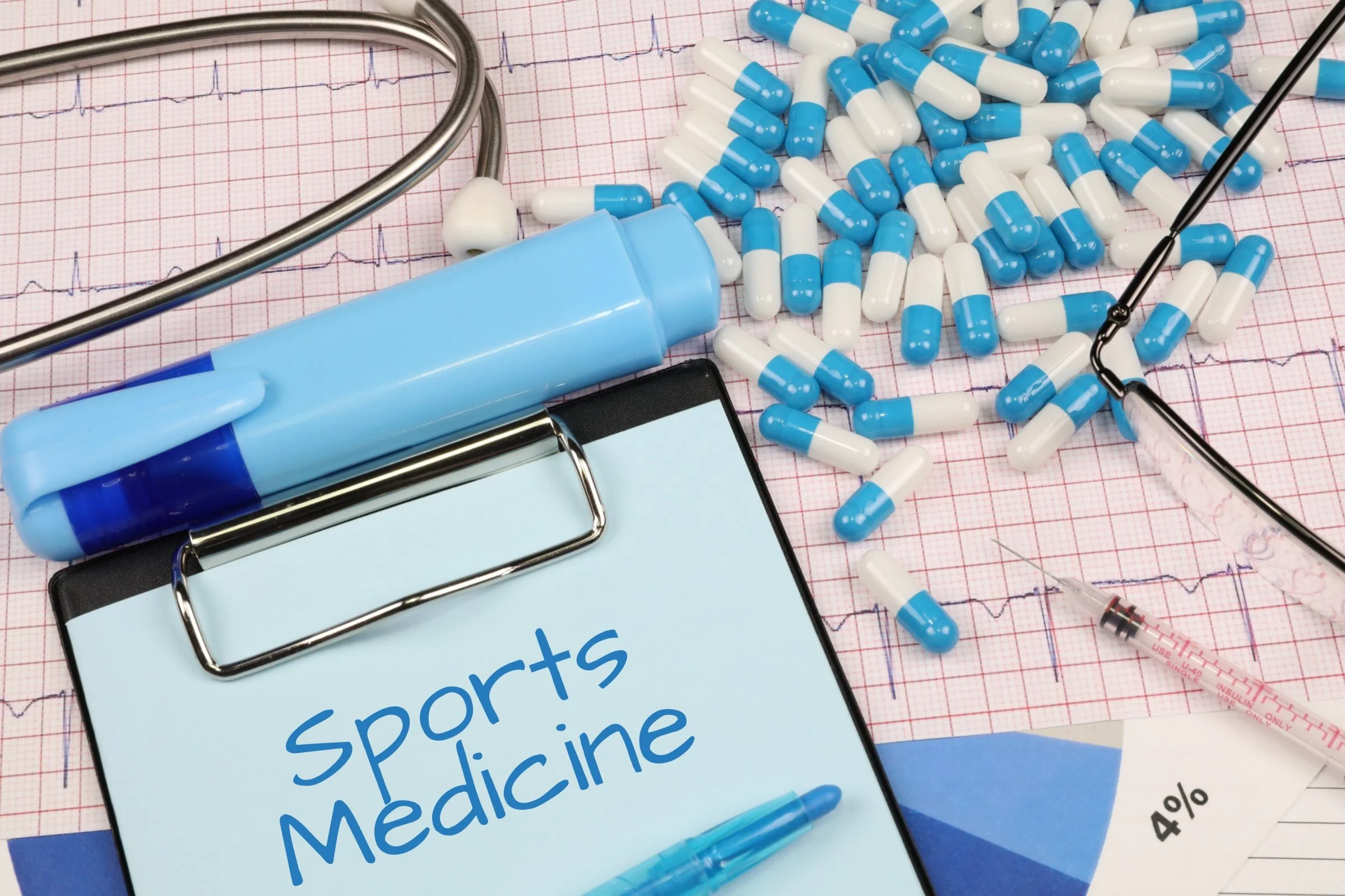How to Become a Sports Medicine Doctor
The way to become a sports medicine doctor comprises academic education and medical training that leads to employment opportunities in this healthcare field with high demand.
Indeed, the insurance providers dedicate specialized medical care to preventing injuries, diagnosing them and treating them while rehabilitating patients who participate in sports or physical activities. Sports medicine doctors serve athletes and physically active patients by maximizing athletic abilities while stopping injuries and then following patients through post-physiological healing and recovery.
To practice as a sports medicine doctor professionals must master medical know-how in addition to skilled training for sports injuries and know-how about biomechanics and exercise science. Moreover, sports medicine doctors partner with coaches trainers along with physical therapists to guarantee their patients achieve maximum health and recovery outcomes.
What Does a Sports Medicine Doctor Do?
Sports medicine doctors deliver complete medical services to athletes who take part in physical sports. Further, sports medicine doctors assist patients in peak performance maintenance and efficient injury recovery. Their responsibilities include:
- Sports medicine doctors perform diagnosis along with treatment for standard sports-related injuries such as bone fractures as well as ligament sprains and skull traumas.
- Healthcare professionals in this field also establish therapeutic plans for rehabilitating athletes who need healing from their sports-related injuries.
- The physician provides patients with advice about techniques that reduce injury frequency.
- Healthcare professionals use physical assessments to determine how fit someone is before participating in sports activities.
- The doctor must administer medications alongside associated therapeutic methods to handle pain.
- Medical staff works together with sports medicine specialists physical therapists and athletic trainers to achieve optimal outcomes in recovery activities.
Educational Path to Becoming a Sports Medicine Doctor
Surely, sports medicine doctors need rigorous training and numerous completed educational steps to achieve their practice. The training process in sports medicine consists of some fundamental steps.
Undergraduate Education
The first step for medical students SPECIALIZING in sports medicine includes earning their bachelor’s degree from organizations approved for this field especially:
- Biology
- Exercise Science
- Kinesiology
- Health Sciences
Students who wish to become sports medicine doctors must achieve high scores in science subjects, particularly biology and chemistry. Indeed, the students who take part in sports-based research alongside their athletic involvement secure better medical school acceptance due to sports-related experiences.
Medical School
Student education continues at medical school right after obtaining an undergraduate degree through a four-year program. The educational foundation at medical school includes teaching students anatomy as well as physiology pathology and pharmacology classes.
The educational program contains two sequential sections that build upon one another.
- Preclinical Years (First Two Years): Medical science classes take priority at the start of medical school during its first two preclinical years.
- Clinical Years (Final Two Years): Students spend their last two years in medical school rotating through multiple hospital specialties, enabling hands-on patient care experience.
Besides, students interested in sports medicine should prioritize experiencing relevant training at orthopaedics and rehabilitation centres and physical medicine establishments.
Residency Training
Doctors after finishing their medical studies must join a residency program focusing on primary care specialties which include Family Medicine and Internal Medicine and Pediatric medicine and Emergency Medicine and Physical Medicine and Rehabilitation.
- Family Medicine (3 years)
- Internal Medicine (3 years)
- Pediatrics (3 years)
- Emergency Medicine (3–4 years)
- Physical Medicine and Rehabilitation (4 years)
Additionally, the doctors acquire their medical diagnostic along with treatment capabilities through supervised residency training that allows them to handle multiple health conditions.
Fellowship in Sports Medicine
Sports medicine doctor candidates need to undertake one or two-year fellowships in sports medicine after finishing residency training. Academic fellows obtain specialized skills during this period of training that include:
- Musculoskeletal injuries
- Concussion management
- Exercise physiology
- Injury prevention techniques
- Advanced imaging techniques (MRI, ultrasound)
Moreover, fellows gain essential practical experience throughout their training while assisting athletes at amateur levels and professionals in collegiate and professional sports teams.
Board Certification and Licensure
Physicians seeking sports medicine doctor practice must meet two requirements which include:
Sports medicine practitioners must pursue continuous education to obtain knowledge about recent developments in their field.
Challenges of Becoming a Sports Medicine Doctor
Surely, sports medicine doctor training produces rewarding results although it presents numerous difficulties to overcome. Students must dedicate at least one decade of their lives to complete the long demanding program for becoming a sports medicine doctor. Patients encounter substantial challenges when they try to balance their studies with clinical work and their commitments. Sports medicine doctors need to sustain continuous learning skills to stay updated about new developments in their field.
However, the occupation demands substantial physical and emotional energy from doctors particularly when they work with sports athletes under demanding conditions. Besides, intense competition exists between candidates seeking fellowship positions along with top sports team roles. Success in sports medicine practice requires medical practitioners to demonstrate resilience along with strong sports enthusiasm and dedicated patient treatment.
Skills and Qualities of a Successful Sports Medicine Doctor
The following characteristics help sports medicine doctors reach professional success:
- Sports medicine doctors need excellent skills for diagnosing and curing athletic injuries.
- Successful communication skills enable medical practitioners to work with athletes and coaches in addition to medical professionals.
- A successful sports medicine professional needs to solve problems when designing individual treatment strategies.
- A sports medicine doctor needs sustained physical capability to excel during dynamic sports event situations.
- The professional needs to have both empathy and patience because they must care for athletes so they can heal from their injuries.
Career Opportunities in Sports Medicine
Regarding, the personnel who practice sports medicine have different work environments available which include:
- Hospitals and Clinics: Providing general and specialized care for injured athletes.
- Professional Sports Teams: Serving as team physicians for elite athletes.
- University Athletics Departments: Managing student-athlete health programs.
- Rehabilitation Centers: Assisting in post-injury recovery and physical therapy.
- Private Practice: Sports medicine practitioners can conduct private practitioner services to deliver specialized sports medicine treatment for individuals.
Some doctors combine their administrative work with research activities and academic tasks to create innovative treatment approaches.
The Future of Sports Medicine
Correspondingly, sports medicine expands through present-day technological and research breakthroughs. Stem cell treatment with platelet-rich plasma (PRP) under regenerative medicine methods presently changes the way injuries get treated. Moreover, The prevention of sports injuries benefits through the development of wearable technology systems combined with AI-driven diagnostic capabilities.
Sports medicine doctors now perform expanded responsibilities which include mental health care for athletes because mental health discussions in sports have increased. The implementation of telemedicine through consultations delivers easier access to health care for athletes throughout the world. The advancement of sports science will increase the crucial nature of sports medicine doctors who will optimize performance outcomes and overall health providing growth for this medical specialization.
Final Thoughts
A career as a sports medicine doctor requires both medical skills combined with sports fanatism and physical health expertise to achieve this demanding yet fulfilling profession. Further, sports medicine doctors who receive suitable education and experience together with proper training become essential to improve both athletic performance and total player welfare.
FAQs
What degree is best for sports medicine?
Students who wish to specialize in sports medicine should pursue biology as their major or exercise science or kinesiology. The next educational requirement consists of obtaining either an MD Doctor of Medicine degree or a DO Doctor of Osteopathic Medicine degree. Sports medicine specialization requires residents to complete additional programs during residency and then seek fellowships.
What are the highest paying sports medicine jobs?
The specialists of orthopaedic surgery in sports medicine achieve a maximum salary scale that spans $400,000 to $700,000 annually. Medical professionals who treat professional athletes earn above $300,000 yearly as sports medicine physicians and physical medicine and rehabilitation specialists earn between $180,000 to $300,000 annually. Sports medicine consultants running private practices earn large salaries based on their experience levels with their patients.



